BRUCE SCHWARTZ, ACADEMIC TECHNOLOGY INTEGRATOR: For many individuals, technology is a love/hate relationship.
We see the benefits in our personal and professional lives. We appreciate that these tools provide organizational structures, enhanced communications, and real-time exposure to what is happening today. However, we can also become frustrated by how frequently new and updated products and services are released—and uneasy about the impact these tools may have on our society, our relationships, and our ability to think independently.
As an Academic Technology Integrator (i.e., someone who pays special attention to the intersection of teaching, learning, and technology), I get asked a lot of questions.
These questions usually fall into two categories:
1. How can our students ‘keep up’ with the rapid pace of technology in order to be successful in secondary school and beyond, and 2.,
By deploying so much technology in the classroom, are we “throwing out the baby with the bathwater” as we alter teaching methods with new technologies?
Let’s first define what I mean by technology. It is common that technology is defined in terms of new electronic devices, operating systems, mobile apps, workplace applications, hardware, etc. This is not entirely wrong.
However, when you look at Merriam-Webster’s definition you see that the term refers to “the use of science in industry, engineering, etc., to invent useful things or to solve problems; a machine, piece of equipment, method, etc., that is created by technology.” The word technology originates in the ancient Greek technē meaning “art, skill, trade, and craft”. So, the word is not confined to the realm of hardware and software. It implies action, invention, technique, creativity, and “a means to an end.”
Let’s think about the second question: are our teaching methods being adversely impacted with new technologies? When I think about the great teachers I have come to know, they are constantly working (often obsessing) to hone their craft and, in doing so, they look to new and different methods. Great teachers leverage every tool available to bring the most out of their students.
By deploying so much technology in the classroom, are we “throwing out the baby with the bathwater” as we alter teaching methods with new technologies?
These same teachers have a treasure trove of proven, pedagogically sound strategies that they deploy as needed. Likewise, they embrace their intrinsic desire to discover, learn, and try new methods and tools so as to constantly improve their teaching practice.
The best teachers recognize that new technologies are not substitutive, they are additive. Therefore, the question really is not whether the use of technology should —or, even could —supplant the use of tried and true strategies. Instead, it is more about constantly learning how and when technology can support, enhance, and even, transform, teaching and learning by creating new, exciting possibilities and opportunities both in and out of the classroom.
This brings me back to the question of staying current with the head-spinning developments in technology. Frankly, it would be a nearly impossible task to stay abreast of every new desktop and cloud-based application, hot iOS and Android mobile app, operating system updates, hardware upgrade…and the list goes on.
But in a strange twist, it is a technology-enabled process that has made it easier for us all to stay relatively current. Professional Learning Networks (PLNs) that exist online like Twitter, Google+, and LinkedIn have enabled us to share ideas and resources, collaborate with others in our professional fields, ask questions, or simply chat about what is happening in our classrooms.
I am also a member of various professional email listservs that provide real-time, interactive platforms to foster a global exchange of ideas, perspectives, and possible solutions to challenges I encounter.
These technology-enabled human networks connect me; connect us, to other “lifelong learners” who are curious, intrinsically motivated, and independent thinkers. These networks aid us in understanding how new advancements can provide tools to facilitate student exploration, excite teachers, and engage us all in the learning process. As new products and services proliferate, so too does the human desire to share, collaborate, teach, and learn—therefore, the task of “keeping up” can be as natural, and as important, as preserving our connection to each other.
So, in terms of the love/hate relationship with technology, I fall squarely in the middle. I am excited by its potential. My excitement does not stem from what the technology is, but instead, what are the possibilities that the tools present in the hands of a skilled educator.





